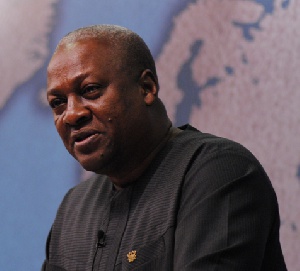Business confidence in Ghana is set to dampen further as businesses grapple with an extremely crippling operating environment, worsened by an ailing economy, currently in its third month of a three-year bailout programme with the International Monetary Fund (IMF).
The Bank of Ghana (BoG)’s survey for the first quarter of 2015 put the business confidence index at 88.9 (March 2015) from 99.2 in December last year.
The recent so-called partial deregulation of Ghana’s petroleum sector which commenced amidst confusion last week saw a 4 per cent hike in the price of fuel followed by a 15 percent increase in transport fares announced by the Ghana Private Transport Union (GPRTU) and the Road Transport Coordinating Council.
The increments have already started biting and many enterprises are on edge.
In the midst of the implementation of the petroleum price liberalization, Oil Marketing Companies (OMC) last week protested a reduction of their Primary Distribution Margin (PDM) by 2 pesewas, pointing out that their profitability was on the line.
“Our margin was 16.67 Ghana pesewas per litre before the deregulation but it has been reduced to 16.00 Ghana pesewas per litre so my profitability will be affected by the loss of 0.0067 Ghana pesewas per litre,” laments an OMC.
It will be recalled that last month, prices of petroleum products went up by 9 percent to the discomfort of businesses as the Association of Ghana Industries (AGI) in a statement protested that the increase will “stifle the operations of businesses that are currently struggling to survive in a harsh economic environment”
The Association maintains that businesses are already under serious pressure from the Bank of Ghana’s policy rate increase from 21 to 22 per cent, Cedi depreciation against the US dollar at over 18 per cent since January 2015, a 17.5 per cent special levy on petroleum products, over 30 per cent bank lending rates and inflation currently at 16.9 per cent.
It wonders why prices of petroleum prices would go up at a time of worsening economic conditions amid a relentless load-shedding regime.
Currently, most businesses are only surviving on generators at high fuel cost and this has been worsened by the increases in fuel prices.
“The cumulative effect of these challenges is the high cost of doing business”, the AGI has said.
The Association is worried over the fact that “Ghana is fast losing its competitiveness as a country to sub-regional economies”.
It has advised government to give priority to all measures being taken to mitigate the situation.
The Ghana Union of Traders Association (GUTA) is dreading the long term effects of the increasing cost of living on the businesses of its members as their profits are wiped out.
Economist at the University of Cape Coast Business School Dr. John Gatsi says consumers should expect further increases in prices of goods and services as the cedi continues to depreciate against major trading currencies.
“There is no clear short-term measure for this issue. We only have medium to long term solutions,” he stated.
Dr Gatsi has also predicted the cedi’s free fall will only stop if remittances and investments increase.
Further depreciation of the currency is dragging businesses through another nightmare as prices of goods and services inch up.
With most businesses importing goods priced in dollars and other foreign currencies, they have no option than to sell in the equivalent of the cedi which pushes up the cost of goods and services.
Checks by this paper at some forex bureaux on June 24 revealed GH¢7.0 to a Pound and GH¢4.5 to a dollar.
Businessmen who deal in spare parts in Accra are lamenting rising costs of imports due largely to the Cedi’s free fall.
“For the past four, five days, you keep on changing prices every hour. You keep on adjusting your price upwards, upwards, upwards”, a desperate dealer noted.
According to him, ‘panic buying’ of the dollar, appears to be the only immediate way to preserve his earnings and capital.
As a spare parts dealer, his clients have been postponing the purchase of spare part because they are becoming pricey.
Government has been chided over what some experts believe is poor management of the economy leading to the cedi’s depreciation and related woes.
General News of Thursday, 25 June 2015
Source: Ghanaian Times

















